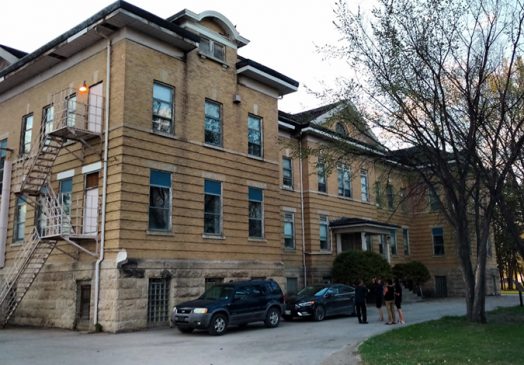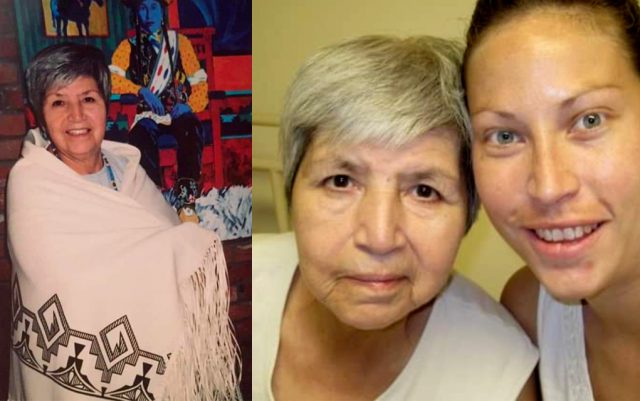Boozhoo (“hello” in Anishinaabe),
I’m a few generations removed, but I still feel the pain of the residential schools and their impact.
Removed from her homeland and family on Long Plain First Nation, my Nokomis (Grandmother), Patricia Daniels, attended the Portage La Prairie Residential School as a child. In 2018, I returned home for her memorial, after her passing in 2017. My Aunties, Uncles, Father and I visited the grounds of what is now a historical building. I touched the brick at the rear of the building, where her name was inscribed. Her name at birth was Lena. I climbed the stairs to look in the window of the room where her bed was situated while in attendance. It is now filled with filing cabinets, but I was haunted by the rows of beds that once existed there. My Nokomis ran away from the school as a child due to the brutality that she endured. Though I did not personally live through this, I was taught at a young age of the happenings that occurred.

Acknowledging the truth of the events that occurred during the days of the residential school system help those that share this history in recognizing and embracing their lineage, their culture, their history, and their resiliency. It brings the issues to the forefront and creates dialogue, making it acceptable to talk about and to hurt a little less. In sharing the history of our family with my own children, they have difficulty believing these events ever occurred. Recognizing this is crucial to Canada’s heritage and its construct, a country I am very proud to call home.
I proudly carry not only her assigned name, Patricia, but the surname assigned to my Mishomis (Grandfather), Robert Roulette. I feel my name carries great historical relevance to my existence, past events, and the resiliency of the Anishinaabe people.
Miigwech (“thank you” in Anishinaabe),
By: Patricia M. Roulette, Senior Manager, Projects CFO, Finance Division, CFMWS, CFB Borden
If you need help: National Residential School Crisis Line 1-866-925-4419
The National Indian Residential School Crisis Line has been set up to provide support for former residential school students. You can access emotional and crisis referral services by calling the 24-hour National Crisis hotline.
Déclaration de victime des pensionnats
Boozhoo (« bonjour » en anishinaabe),
Quelques générations me séparent de l’époque des pensionnats, mais je ressens néanmoins les souffrances et les répercussions qu’ils ont engendrées.
Éloignée de son milieu et de sa famille de la Première Nation de Long Plain, ma Nokomis (grand-mère), Patricia Daniels, a été placée dans le pensionnat de Portage La Prairie dans son enfance. En 2018, je suis rentrée chez moi pour assister à la cérémonie organisée en sa mémoire après son décès en 2017. Mes tantes, mes oncles, mon père et moi avons visité les lieux de ce qui est devenu un immeuble historique. J’ai touché à la brique à l’arrière de l’immeuble où son nom était inscrit. À sa naissance, on l’avait prénommée Lena. J’ai monté l’escalier pour regarder par la fenêtre du dortoir où se situait son lit lorsqu’il y séjournait. Ce dortoir était désormais rempli de classeurs, mais j’étais hantée par les rangées de lits qui s’y trouvaient jadis. Enfant, ma Nokomis s’était enfuie du pensionnat en raison de la brutalité dont elle a été victime. Même si je n’ai pas vécu ces événements personnellement, très jeune on m’a raconté ce qui s’était passé.
Reconnaître la véracité des événements survenus à l’époque du système des pensionnats aide les gens qui relatent cette histoire à reconnaître leur lignée, leur culture, leur histoire et leur résilience et à y adhérer. Ça porte ce dossier à l’avant-scène et suscite le dialogue, ce qui fait en sorte qu’il est acceptable d’en parler et de souffrir un peu moins. Quand je raconte l’histoire de notre famille à mes enfants, ils peinent à croire que ces événements se sont déjà produits. La reconnaissance de ces faits est cruciale pour l’héritage du Canada et la construction de ce pays que je considère fièrement comme ma patrie.
Je porte fièrement non seulement le prénom qu’on lui a attribué, Patricia, mais également le nom donné à mon Mishomis (grand-père), Robert Roulette. J’estime que mon nom revêt une grande pertinence historique pour mon existence, les événements passés et la résilience du peuple anishinaabe.
Miigwech (« merci » en anishinaabe),
Par : Patricia M. Roulette, cadre supérieure, CDF des projets, Division des finances, SBMFC, BFC Borden
Une ligne d’écoute téléphonique de Résolution des questions de pensionnats indiens offre du soutien aux anciens élèves des pensionnats indiens. Jour et nuit, vous pouvez accéder à des services de soutien affectif et d’aiguillage en situation de crise 24 heures sur 24, en composant le : 1-866-925-4419












